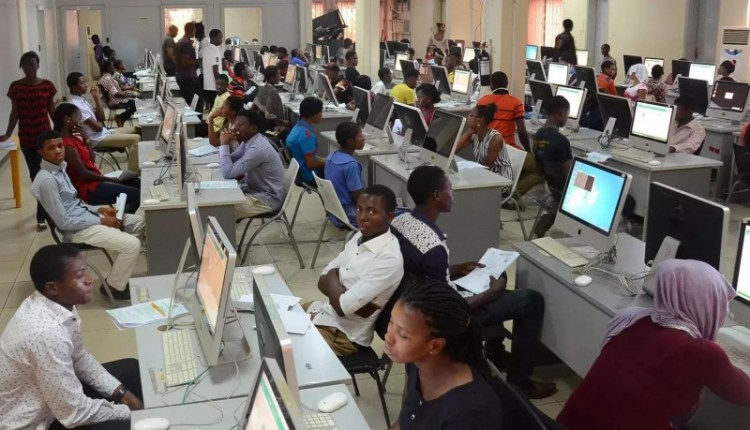In a surprising twist that has left many in the education sector talking, several university admission seekers have disowned a lawsuit purportedly filed on their behalf against the University of Lagos (UNILAG) and Obafemi Awolowo University (OAU). The case, which also involved the Joint Admissions and Matriculation Board (JAMB), alleges widespread irregularities during the 2025 Post-UTME screening exercise.
The lawsuit, reportedly initiated by a law firm identified as F.K. Nnadi & Co., was said to have been filed in the names of some candidates who participated in the Post-UTME screening of the two prestigious institutions. The claim centered on alleged cases of manipulated scores, wrongful flagging of candidates for examination malpractice, and withholding of results due to supposed technical errors.
However, the supposed plaintiffs — the students whose names appeared in the suit — have now come out to say they were never consulted or even aware of the case until they began to experience unexpected restrictions on their JAMB admission profiles.
Allegations of Admission Irregularities: What Sparked the Controversy
The origin of the dispute dates back to the recently concluded 2025 Post-UTME exercise, where some candidates claimed that their results were either withheld or displayed suspiciously low scores inconsistent with their performance.
According to the lawsuit, both UNILAG and OAU allegedly deployed the same screening software that was accused of generating faulty results or flagging certain candidates for malpractice without sufficient evidence. The petitioners, through their counsel, alleged that these errors had unfairly denied many qualified candidates admission opportunities.
In response to the filing, a court reportedly issued an ex parte order directing that the status quo be maintained in the ongoing admission process pending the determination of the suit. As a result, JAMB temporarily froze the Central Admission Processing System (CAPS) profiles of all candidates named in the suit to comply with the order — preventing them from accepting or rejecting offers from any institution.
Candidates Claim Ignorance of the Lawsuit
Following the court’s action, several of the candidates affected began to notice they could no longer access or make updates on their CAPS portals. Upon inquiry, they discovered that their details had been used in a legal case against UNILAG and OAU — a move they say they never authorised.
The candidates have since disassociated themselves from the lawsuit, describing it as “unauthorised” and “harmful” to their admission chances. Some said the situation had caused them unnecessary anxiety and setbacks, especially as other universities continued with their admission processes.
One of the affected candidates reportedly lamented that while their peers were accepting offers and proceeding with admission formalities, they were left stranded because their profiles were under a legal freeze. Many have now appealed to JAMB to unfreeze their accounts and restore their access, insisting they had no part in the case.
Legal and Ethical Concerns Raised
The development has triggered serious questions about consent, representation, and legal ethics. If indeed the law firm filed the case without the express consent of the individuals named as plaintiffs, it could amount to a breach of professional conduct and a violation of personal rights.
Legal analysts have noted that while group actions or representative suits are allowed under Nigerian law, proper authorisation must be obtained from those represented. The case could therefore take a new turn if it is established that the supposed plaintiffs never signed any consent documents.
Furthermore, the action raises concerns about how legal representation in educational disputes is handled — and whether desperate efforts to challenge school authorities might sometimes be mismanaged or misrepresented by intermediaries.
Implications for JAMB, UNILAG, and OAU
The freezing of CAPS profiles has broader implications for both the affected candidates and the institutions involved. For JAMB, it places the agency in a delicate position: complying with a court order while also ensuring that innocent candidates do not suffer unjustly.
For UNILAG and OAU, the lawsuit has cast a shadow over their admissions process, prompting public scrutiny about their use of digital screening systems and data verification methods. Both universities have not been formally indicted, but stakeholders are calling for greater transparency in how Post-UTME results are computed and released.
Education observers believe this case could push Nigerian universities to adopt clearer communication strategies with candidates and ensure more independent monitoring of their Post-UTME software.
Students and Parents React
The controversy has sparked heated reactions across student forums and social media platforms. Many parents and candidates have expressed shock at the possibility that names could be used in a lawsuit without prior consent.
While some sympathise with the affected candidates, others believe the lawsuit — whether authorised or not — has at least highlighted the need for improved fairness in Post-UTME exercises. Some candidates have called for JAMB to create an independent channel for reporting screening irregularities directly to the board, instead of relying on third-party legal actions.
What Students Should Learn from This Incident
This episode serves as an important lesson for students and parents alike. Before signing up for any group complaint, petition, or legal representation, candidates must carefully verify who is behind it and what documents they are signing.
Candidates are also advised to:
- Regularly check their JAMB CAPS profiles to ensure no unauthorised actions are linked to their names.
- Avoid sharing personal data such as registration numbers or login details with third parties claiming to offer legal assistance.
- Directly contact JAMB or their respective universities in the event of irregularities instead of relying solely on unverified groups.
Possible Next Steps
With the affected candidates now distancing themselves from the case, there is pressure on the law firm involved to clarify how the plaintiffs’ names were obtained. JAMB may also need to review the status of the frozen CAPS accounts and consider lifting the restriction on those who have publicly declared their non-involvement.
Meanwhile, educational authorities and university managements are urged to strengthen their internal screening verification systems and improve communication with candidates to prevent future misunderstandings.
Conclusion
The ongoing controversy surrounding the alleged Post-UTME irregularities at UNILAG and OAU has opened a broader conversation about transparency, consent, and accountability in Nigeria’s admission system.
While the truth behind the lawsuit continues to unfold, one thing is clear: the integrity of the admission process must remain sacrosanct. Every candidate deserves a fair chance — and every legal representative must act strictly within the bounds of consent and professionalism.



